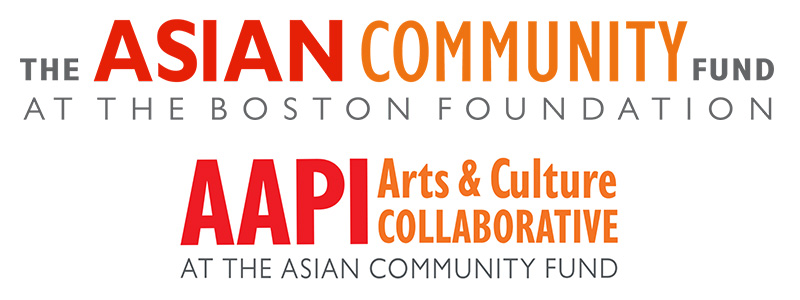New report captures strength, opportunity for AAPI arts and culture sector in Massachusetts
Making Waves report lays out recommendations for growth and catalogs hundreds of Asian arts organizations and cultural events
June 17, 2025
Boston – The Asian-American and Pacific Islander (AAPI) arts and culture sector powers the economic, cultural, and social fabric of Massachusetts, and a focus on core opportunities could accelerate that growth, according to a new report prepared by the Asian Community Fund’s AAPI Arts and Culture Collaborative in partnership with the consulting firm Versity North (formerly Diversity North Group).
The report, Making Waves: The State of the Massachusetts AAPI Arts and Culture Sector, is a first-of-its-kind effort to catalog the region’s AAPI arts ecosystem, coupled with a survey, interviews, and focus groups to uplift the most critical issues and challenges faced by AAPI cultural leaders. The report marks a significant milestone in enhancing the visibility of AAPI artists and cultural organizations, while presenting recommendations to share more representative and empowering AAPI narratives.
“This report captures the collective impact of the vibrant AAPI arts community in Massachusetts and solidifies our region as a national leader in AAPI visibility and narrative change,” said Danielle Kim, Executive Director of the Asian Community Fund. “Through this research and collaboration, we can break down monolithic stereotypes and showcase the richness and multiplicity of our stories.”
Making visible that breadth and depth is one reason that the research partners coupled the report with the curation of three first-ever AAPI cultural inventories, documenting 242 AAPI-centric arts organizations, 104 recurring Asian cultural festivals, and 385 local AAPI arts leaders in Massachusetts.
“From the annual Southeast Asian Water Festival in Lowell to the vibrant Boston Little Saigon Night Market in Dorchester, cultural events like these not only fuel the AAPI community’s sense of visibility and belonging – but drive millions of dollars to our local small businesses and Main Streets,” said State Representative Tram Nguyen, 18th Essex District and Vice-Chair of the House Asian Caucus. “Arts and culture have always thrived in Massachusetts, and we’re proud to celebrate the AAPI community’s contributions as an essential part of that story.”
The project was led by the AAPI Arts & Culture Collaborative—a robust coalition launched by the Asian Community Fund to connect the AAPI arts and culture community across Massachusetts and drive policy and systems change. Since its formalization in 2023, the Collaborative has engaged nearly 300 AAPI arts leaders, creatives, and allies across the state.
“This report shines a light on the tremendous contributions of the AAPI arts and culture sector—an essential and dynamic force in our Commonwealth’s creative economy and civic life,” said Michael J. Bobbitt, Executive Director of the Mass Cultural Council. “Through this project, the AAPI Arts & Culture Collaborative is expanding our understanding of the community’s reach and impact, and affirming the need to support its continued growth.”
For the research, the collaborating teams surveyed 150 AAPI arts and culture leaders, and supplemented that quantitative research with individual interviews and listening sessions across the state in Amherst, Worcester, Lowell, and Boston to gather a fuller understanding of the experiences of AAPI cultural leaders.
“These findings highlight that there are many pathways to visibility and awareness in that the local AAPI arts and culture community brings us together in solidarity and invites connection with others as well,” said Connie Chin, CEO of Global Arts Live and Co-Chair of the AAPI Arts & Culture Asset Mapping working group. “The report shows that this population and sector has long drawn on creativity for resilience, inspiration, and growth. This points to immense potential when AAPI communities are empowered to create, thrive, and lead.”
The survey asked participants to use a ranking system whereby they allocated 20 points across five options in the categories of strengths, opportunities and challenges for the Massachusetts AAPI Arts and Culture Sector. If a respondent were to rank all five equally, for example, they would each receive four points.
When asked about the sector’s strengths, respondents consistently listed the depth of individual talent among AAPI artists and practitioners in the state as the number one strength. Respondents also noted the increasing presence and impact of AAPI arts and culture leaders in the state and the diversity within the sector.
A lack of reliable funding sources for AAPI arts and culture activities, events, organizations and programs topped the list of perceived challenges, followed by insufficient advocacy capabilities and public policy coordination with government to elevate the sector.
Respondents were more evenly divided when asked about the potential opportunities for the sector. Highlighting AAPI population growth to demonstrate the need for greater resources and visibility, a call for more gatherings and convenings to bring sector members closer together, and enhanced capabilities for advocacy and grassroots organizing on behalf of the sector all attracted interest.
“This research sends a powerful message by revealing the breadth and depth of AAPI arts and culture across the state, but also by reminding us how much more remains to be uncovered,” said Jobelle Mesa, Program Manager of the AAPI Arts & Culture Collaborative. “By building on these takeaways and recommendations, we look forward to making waves and uplifting more inclusive narratives across all fourteen counties in Massachusetts.”


